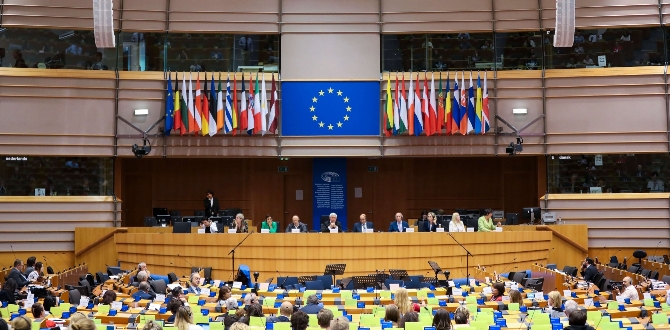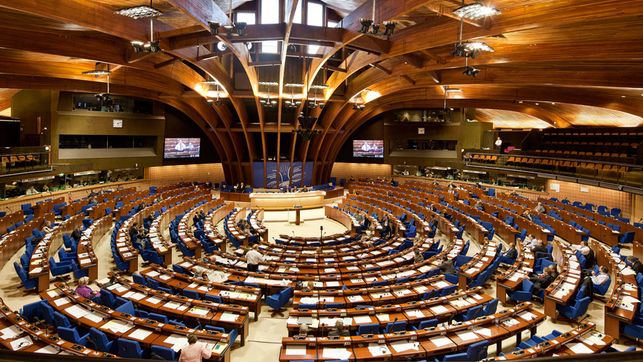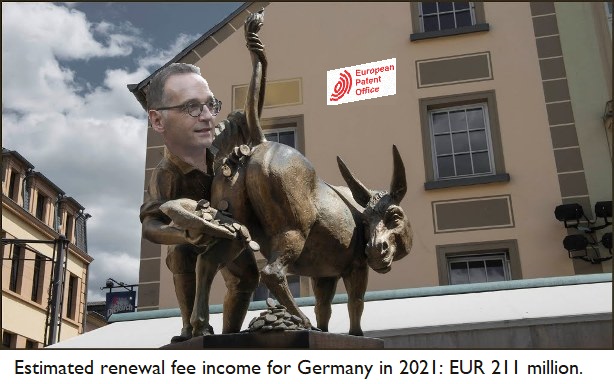

Despite its "European" moniker, the EPO is not an EU institution and is not subject to the jurisdiction of the European Parliament
As is generally known, the EPO is an autonomous international organisation which is not subject to external oversight by any national or supranational parliamentary body.
"I am not subject to any supervisory ministry, parliament, or government. We are the ones who set the rules, discuss them, negotiate them."
"There is supposed to be an instrument of political supervision in the form of the ministerial conference of Article 4a EPC which, however, appears to be a purely mythical construct that only exists on paper."At the same time, since the entry into force of Article 4a EPC in 2007, the EPO Administrative Council has managed to evade political supervision in a sneaky and duplicitous manner by failing to convene a ministerial conference.
This has resulted in a situation in which the EPO is de facto managed as a self-service "smörgÃÂ¥sbord" buffet by the proverbial "quango" of unelected bureaucrats who are not subject to any effective political oversight and remain only nominally accountable for their actions to their supervising ministries and the national governments which appoint them.

Questions about EPO governance have been asked in supranational parliamentary bodies such as the Parliamentary Assembly of the Council of Europe (PACE)
"In his home country, Battistelli was denounced as "a disgrace to France" in the National Assembly, in particular because of the witch-hunts which he instigated against elected staff representatives with the aid of his personal union-busting Pinkertons, the EPO's notorious "Investigative Unit"."In fact, this became quite a regular occurrence during Battistelli's "reign of terror" as news of his managerialist excesses à la France Telecom gradually leaked out into the public domain.
In his home country, Battistelli was denounced as "a disgrace to France" in the National Assembly, in particular because of the witch-hunts which he instigated against elected staff representatives with the aid of his personal union-busting Pinkertons, the EPO's notorious "Investigative Unit".
In the Netherlands, the EPO's number two host state, politicians spoke openly about the abuses of the despotic "système Battistelli" and condemned them on the floor of the national Parliament and in interviews with the Dutch media.
In the main host state Germany, where the EPO's headquarters are located, politicians were far more timid and reticent and - for whatever reason - mostly chose not to get involved in scrutinising EPO affairs in any kind of meaningful way.
Maybe this has something to do with the large amount of national renewal fee income which the Federal Republic of Germany collects from patents granted by the EPO.
According the most recently available figures (see EPO Renewal Fee Estimates [PDF]), the estimated national renewal fee income accruing to Germany in 2021 from patents granted by the EPO is approximately EUR€ 211 million. These are the annual fees paid by patent proprietors to keep their patents in force in a particular national jurisdiction.
Overall, in 2021 Germany is estimated to receive a little over one third of the "cake" of EUR 611 million, representing the grand total all national renewal fee income generated by EPO-granted patents across all of the 38 contracting states.
It is also estimated that renewal fees on patents granted by the EPO account for almost half of the annual income of the German Patent & Trademark Office.
From these figures it becomes apparent that Germany is one of the main financial beneficiaries of the EPO's activities. Germany also benefits indirectly from the fact that a substantial part of the income of active EPO staff in Munich and Berlin, as well as EPO pensioners resident in Germany, flows into the local economy.

German politicians tend to be reluctant to pry into the inner workings of the EPO "Dukatenesel".
"However, as we shall see in the next part, from time to time a small but courageous minority of German public representatives have dared to table parliamentary questions about the EPO both at regional and federal level."These facts may go some way towards explaining the reluctance of German politicians to start prying into the inner workings of this lucrative "Dukatenesel".
However, as we shall see in the next part, from time to time a small but courageous minority of German public representatives have dared to table parliamentary questions about the EPO both at regional and federal level. ⬆